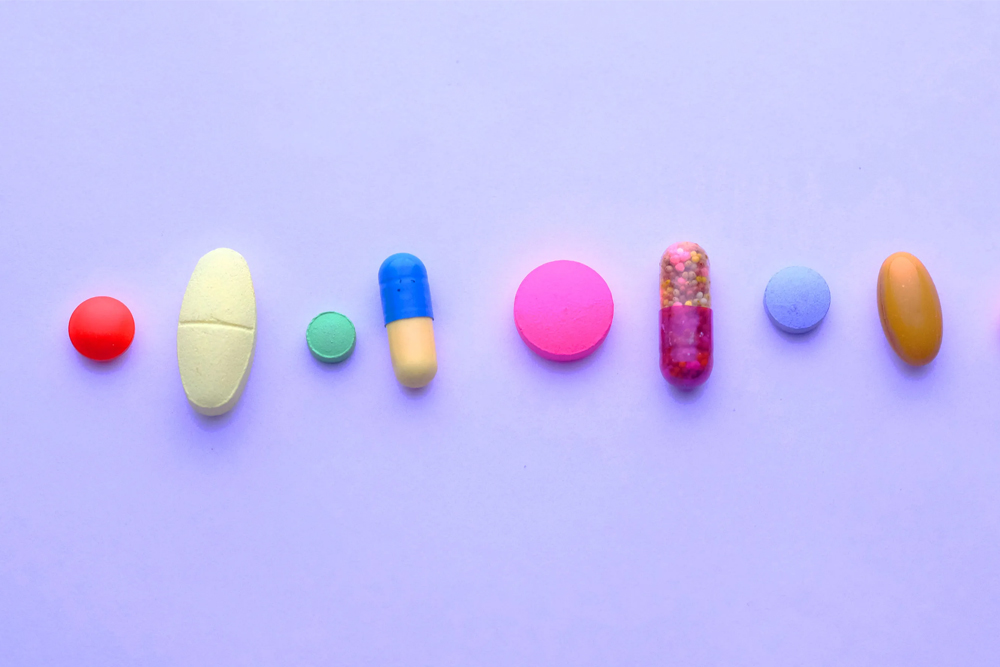Antidepressants are among the most prescribed drugs in the United States. They are mainly used to treat depression, but they are also prescribed for anxiety, obsessive compulsive disorder, and post traumatic stress disorder, among other conditions.
There are also a few off-label uses. That means the use case is not approved by the Food and Drug Administration (FDA), but doctors may still prescribe the drugs in such cases if they are effective. Some off-label uses of antidepressants are for insomnia, pain, and migraines.
Antidepressants are not considered addictive. They do not get you high, unlike other substances. Also, they do not produce cravings or lead to drug seeking behavior.
However, antidepressants do have withdrawal symptoms, and they can make you dependent.
What are the symptoms of antidepressant withdrawal?
When you’re experiencing withdrawal from antidepressants, you would have the following symptoms:
 Dizziness
Dizziness- Anxiety
- Vivid dreams or nightmares
- Flu-like symptoms
- Abdominal pain
- Electric shock-like sensations in the body
These symptoms can last anywhere from two weeks to two months. For most people, these symptoms are mild and not particularly bothersome. More severe withdrawal symptoms do happen to some people, but these are rare.
What causes withdrawal from antidepressants?
Withdrawal symptoms are often your body’s response to the sudden absence of antidepressants and their effects.
These drugs work by increasing the levels of serotonin in your brain. In turn, that leads you to have a better mood. As long as you keep taking antidepressants, serotonin levels in your brain are well balanced, and your mood improves.
But if you stop taking antidepressants, suddenly there will be less serotonin in your brain. The withdrawal symptoms are your body’s reactions to the abrupt change. If you take antidepressants again, these symptoms would go away.
Doctors also call this condition antidepressant discontinuation syndrome. All antidepressants have the potential to produce this condition, but it does not affect everyone who takes these drugs.
Antidepressants that stay in your body only for a short time are more likely to produce discontinuation syndrome. Examples of these are:
- Duloxetine (Cymbalta)
- Venlafaxine (Effexor)
- Paroxetine (Paxil)
- Sertraline (Zoloft)
- Citalopram (Celexa)
- Escitalopram (Lexapro)
Can I get addicted to antidepressants?
 When you think of withdrawal symptoms, you might quickly associate them with addictive substances like cocaine, meth, or marijuana. That would lead you to think that antidepressants might be addictive as well.
When you think of withdrawal symptoms, you might quickly associate them with addictive substances like cocaine, meth, or marijuana. That would lead you to think that antidepressants might be addictive as well.
However, antidepressants are not addictive. For one, they can’t make you high. Their effects cannot be felt right away, unlike other substances. They also do not cause you to have cravings or any drug seeking behavior.
But it’s possible to abuse antidepressants just like any other drug. Even people who have prescriptions can abuse their medications.
One way of doing that is taking higher doses than necessary. For some people, they feel their antidepressants are not working. In an attempt to make the effects stronger, they take higher doses on their own. Doing this can lead to physical dependence.
Other people suffering from depression are also more prone to taking other substances alongside their antidepressant medications. If they don’t feel any noticeable effects with their antidepressants, they may resort to drugs, alcohol, opioids, or other addictive substances.
Is there a way to avoid discontinuation syndrome?
 The most effective way to avoid discontinuation syndrome is to never quit antidepressants “cold turkey”. Suddenly halting your intake of these drugs does not give your body enough time to adjust. The “shock” of the sudden absence of antidepressants will cause your body to produce the withdrawal symptoms mentioned above.
The most effective way to avoid discontinuation syndrome is to never quit antidepressants “cold turkey”. Suddenly halting your intake of these drugs does not give your body enough time to adjust. The “shock” of the sudden absence of antidepressants will cause your body to produce the withdrawal symptoms mentioned above.
Instead, talk to your doctor when it’s time to stop your medications. He will most likely advise you to “taper off” your dose. In other words, you will gradually decrease your dosage over a few days until it reaches zero. That way, you will get only mild withdrawal symptoms, if not none at all.
In other cases, your doctor may switch you from a short acting antidepressant to a long acting one. This makes the process of getting off medications easier on your body.
If you still get withdrawal symptoms, they should go away after a few weeks. If they get more severe, tell your doctor right away. He may prescribe other drugs to help relieve them.
If you’re still on an antidepressant medication, here are a few things that will help.
- Follow your schedule. Take your medication at the exact times that your doctor advised you to. If there are no exact times (such as “twice daily”), create a consistent schedule, like every 6 AM and 6 PM. If, at any time, you miss a dose, take it as soon as you remember. But if your next dose is coming up, skip the missed dose, wait for the next one, and be consistent with the subsequent doses.
- Have a follow-up appointment with your doctor. After you stop taking your medication, talk to your doctor again so he can evaluate the state of your mental health. He can also tell you if your discontinuation symptoms are truly gone. It also helps to arrange more than one follow-up to make sure your depression has not relapsed. If you’re feeling any symptoms of depression again, tell your doctor as soon as you can. He may need to extend your medication or introduce a new antidepressant.
- Be physically active. Physical activity does wonders in relieving depression. If you have not been exercising regularly, make it a habit, especially when you’re discontinuing your medication. If you’re not used to it, beginning an exercise routine can be daunting. But it’s more manageable if you break it down into smaller bits. For example, you can start small by walking 20 minutes twice a week. Then, once you’re used to it, you can add another 20 minutes per week. You can also ask a friend to go with you to make the activity more enjoyable. Exercising can naturally boost your mood, and it’s a great way to keep depression at bay when you begin to taper off from antidepressants.
